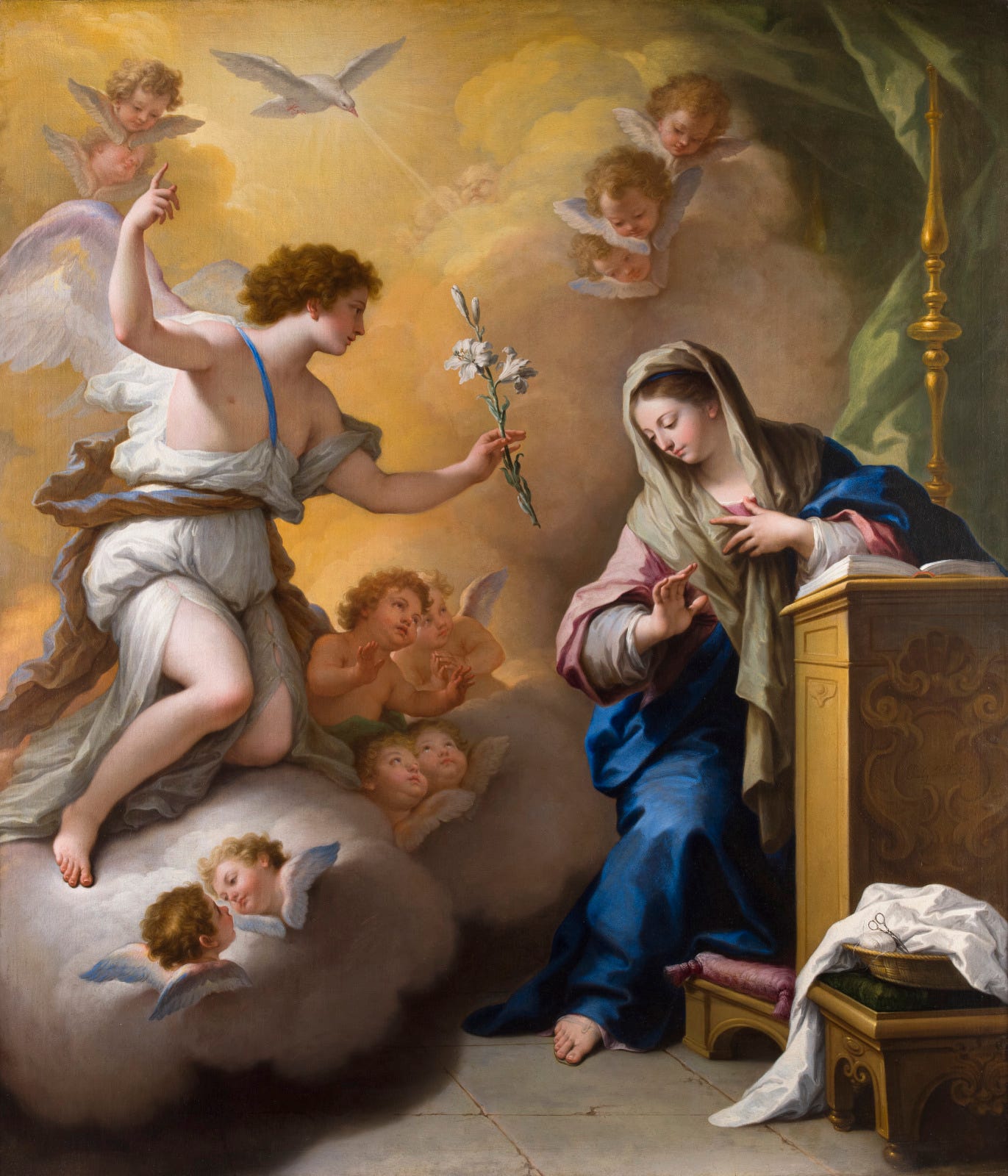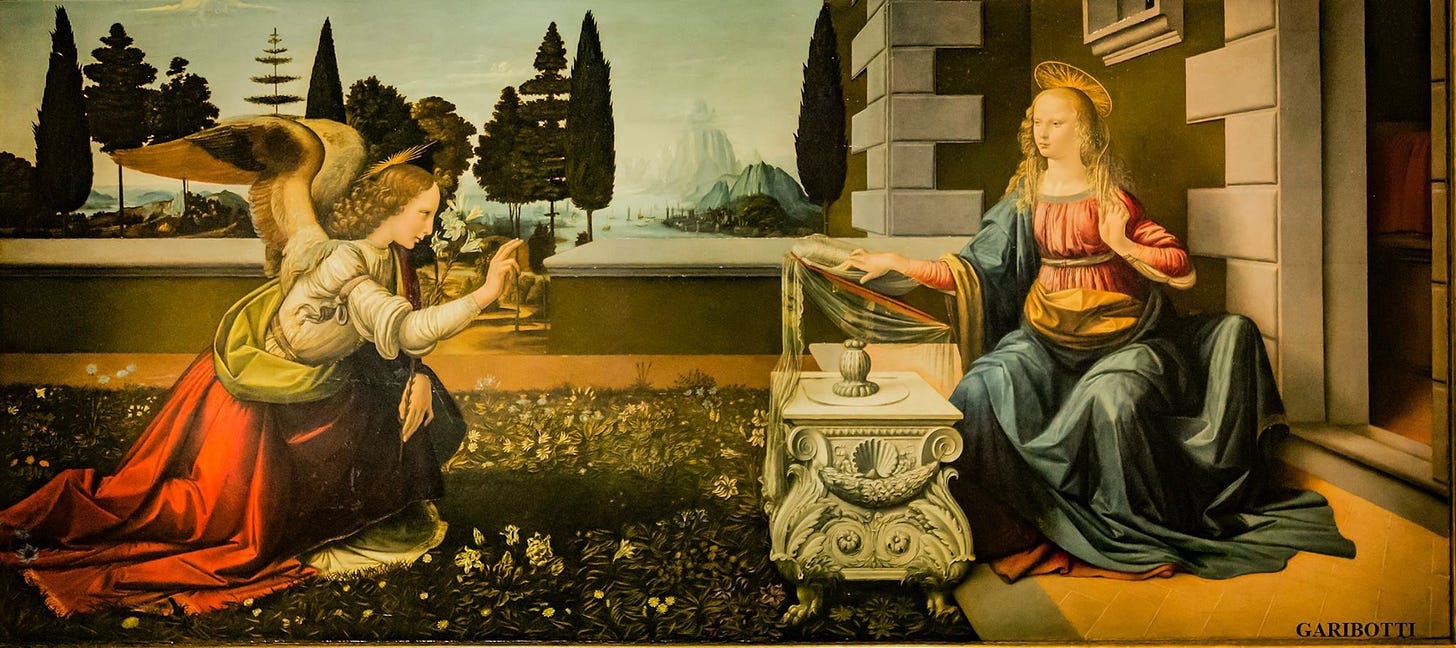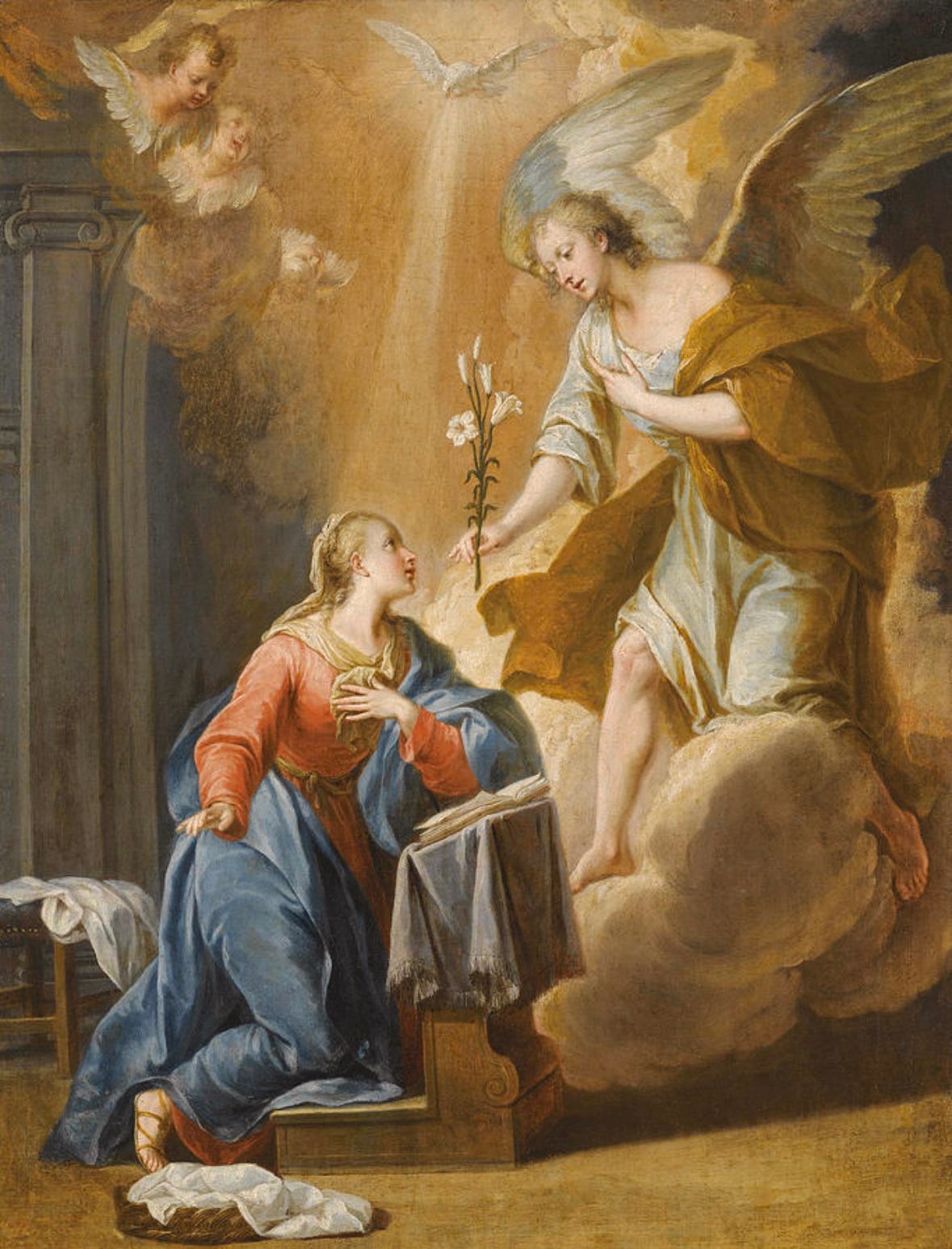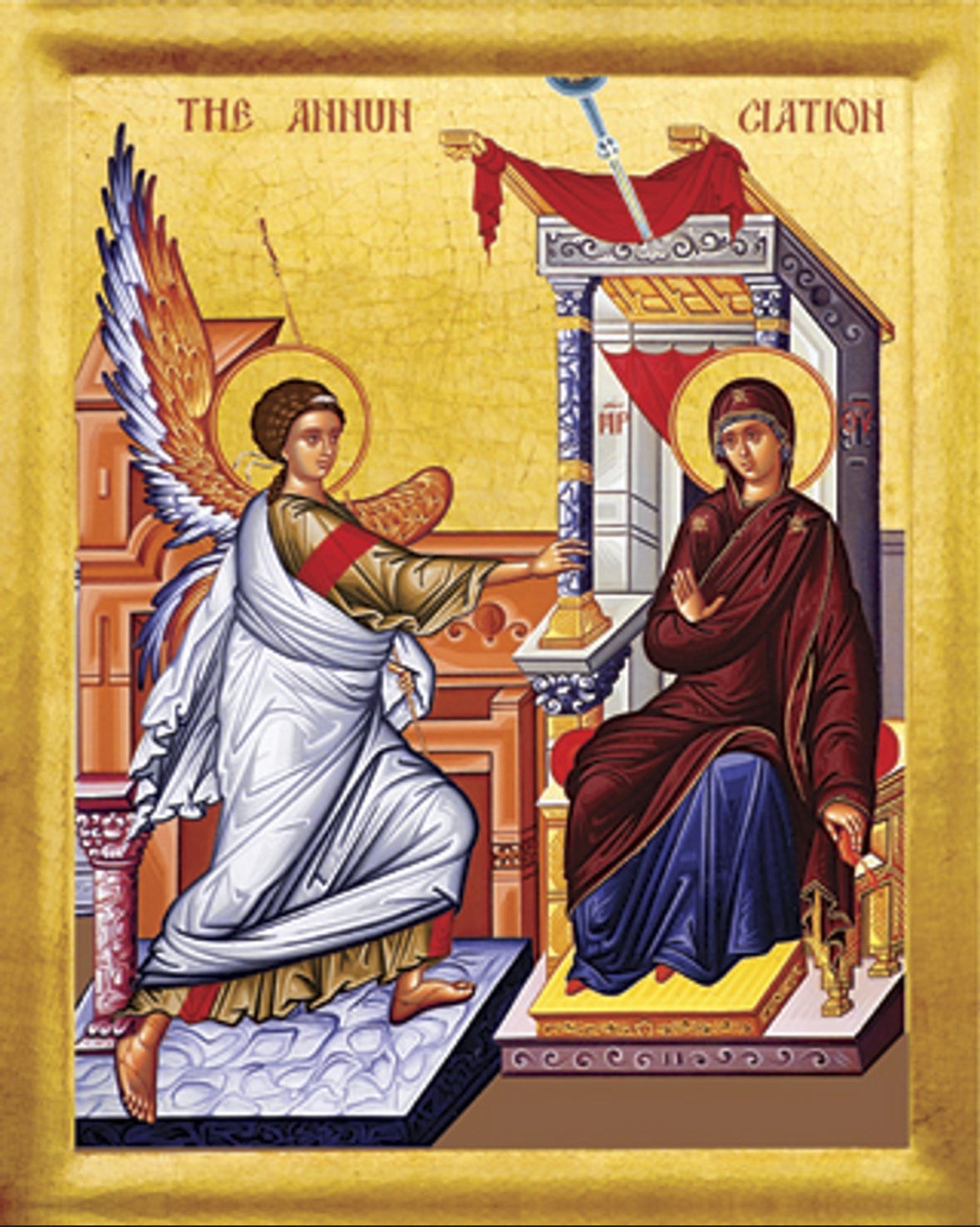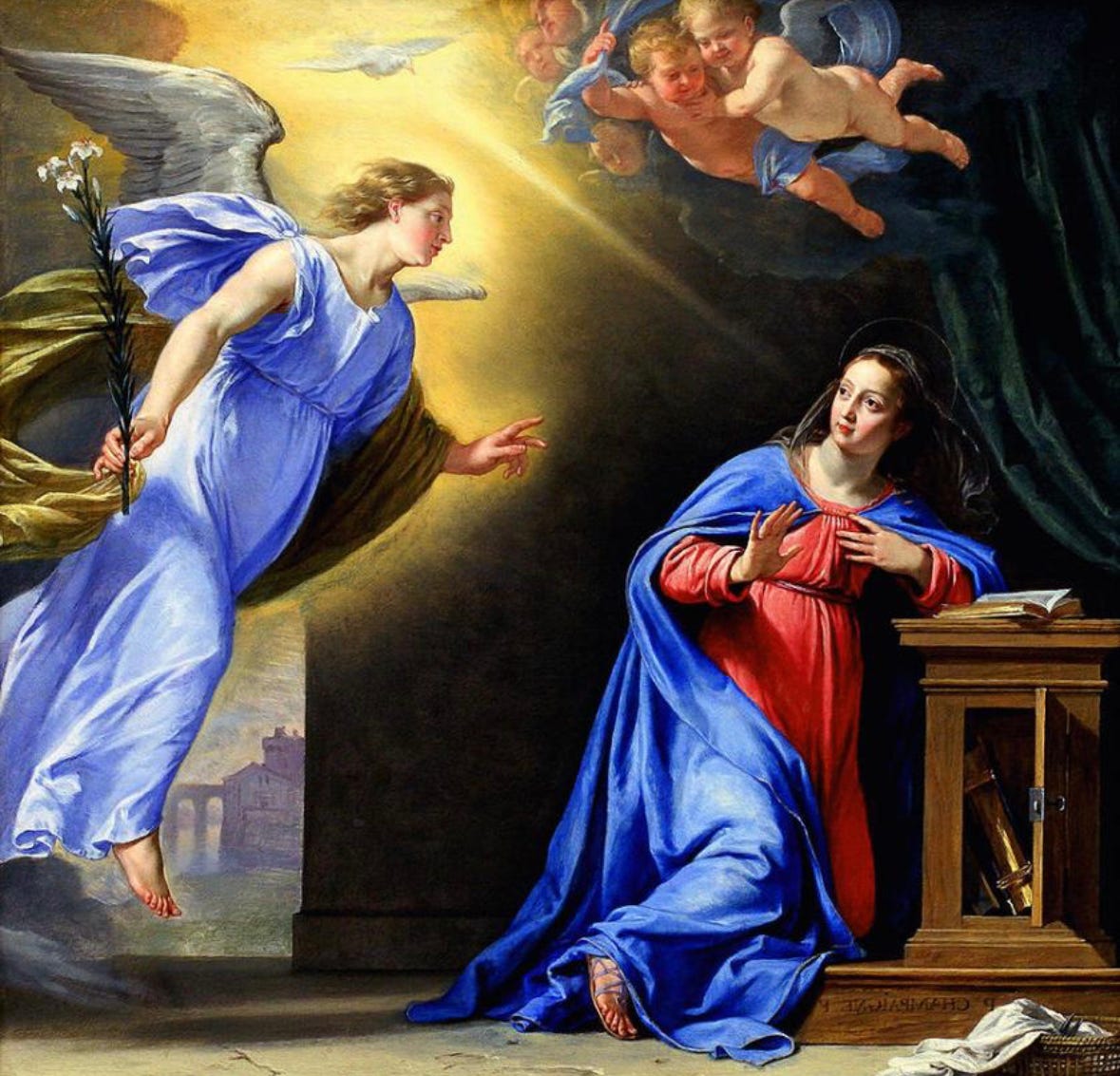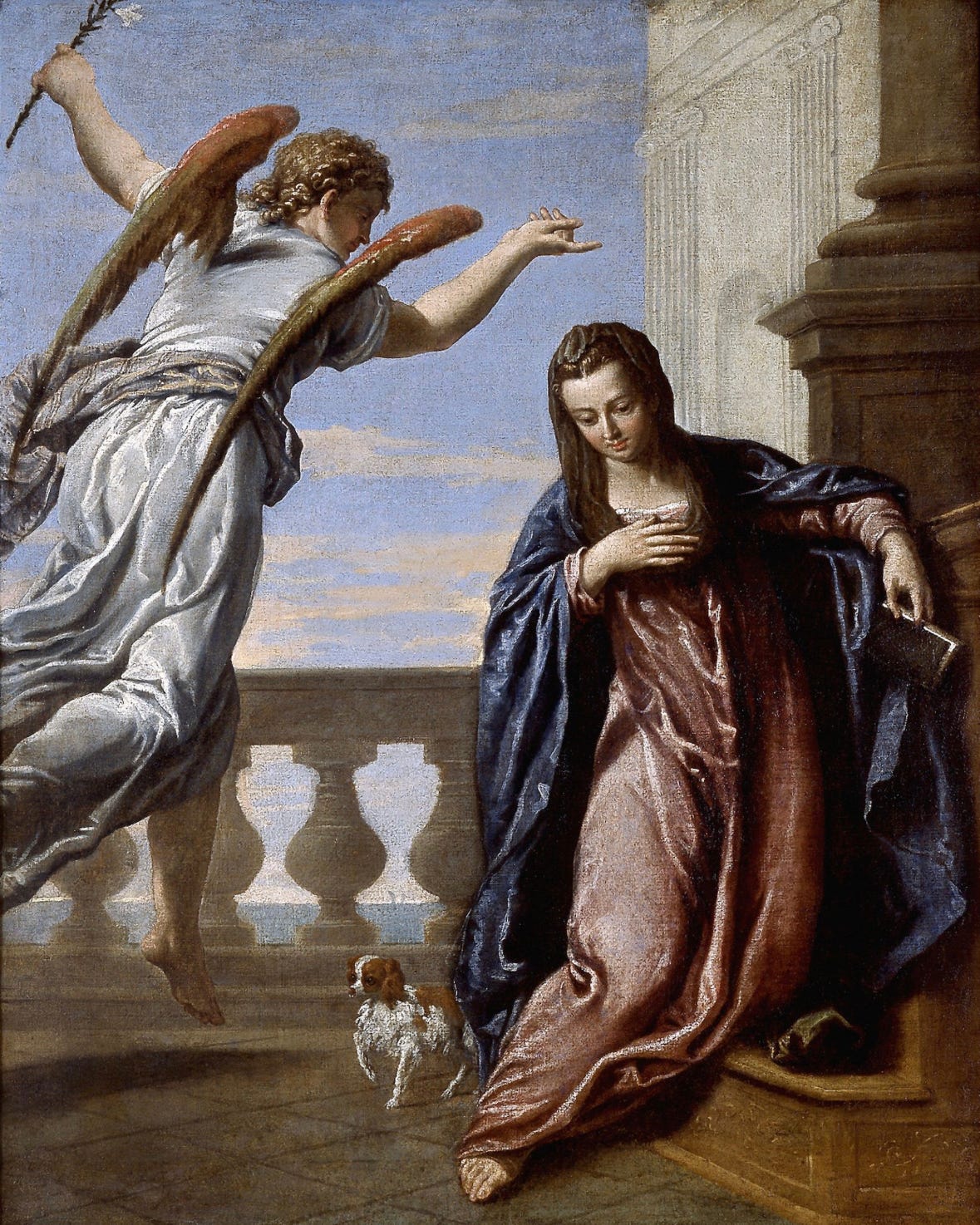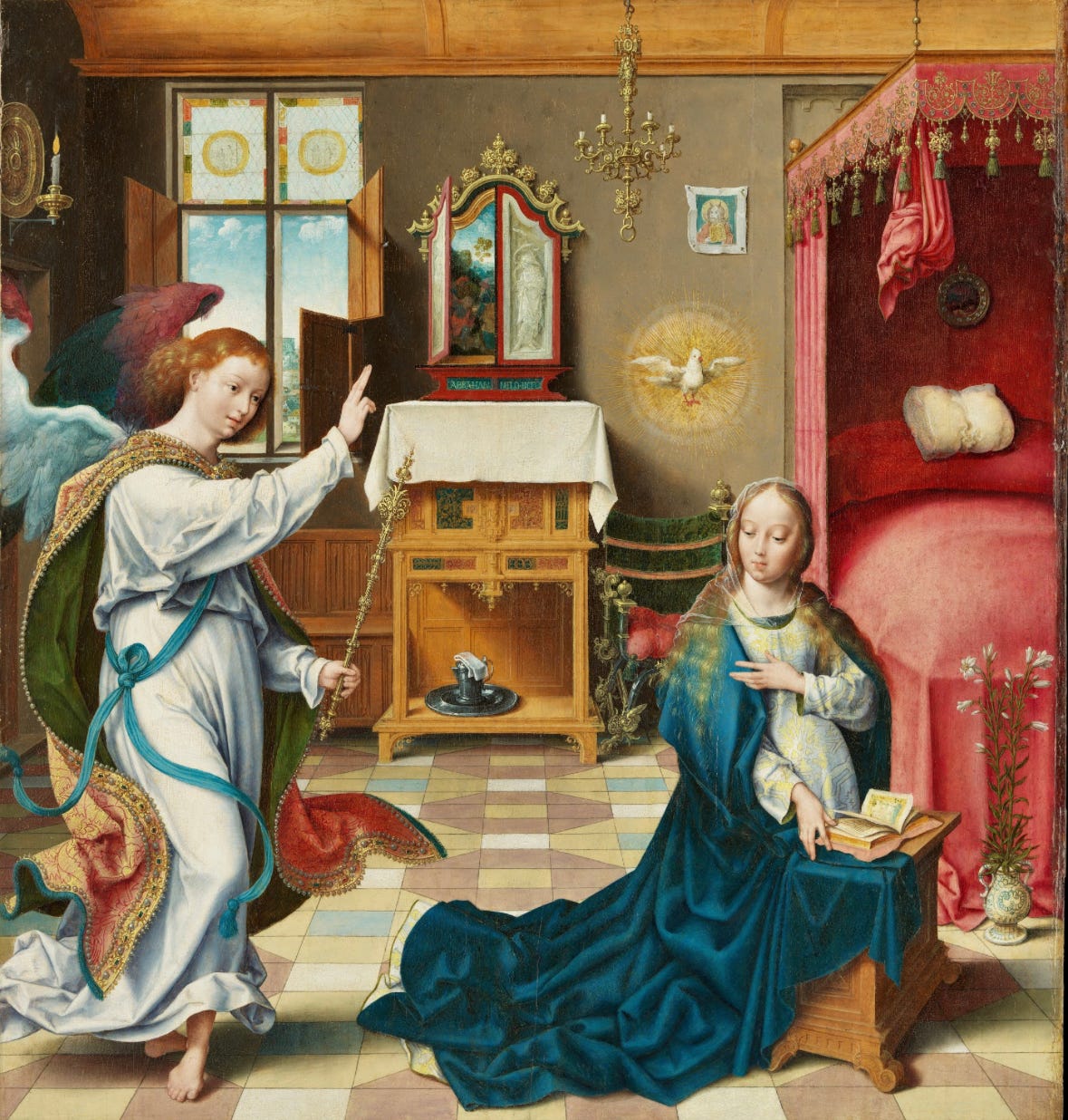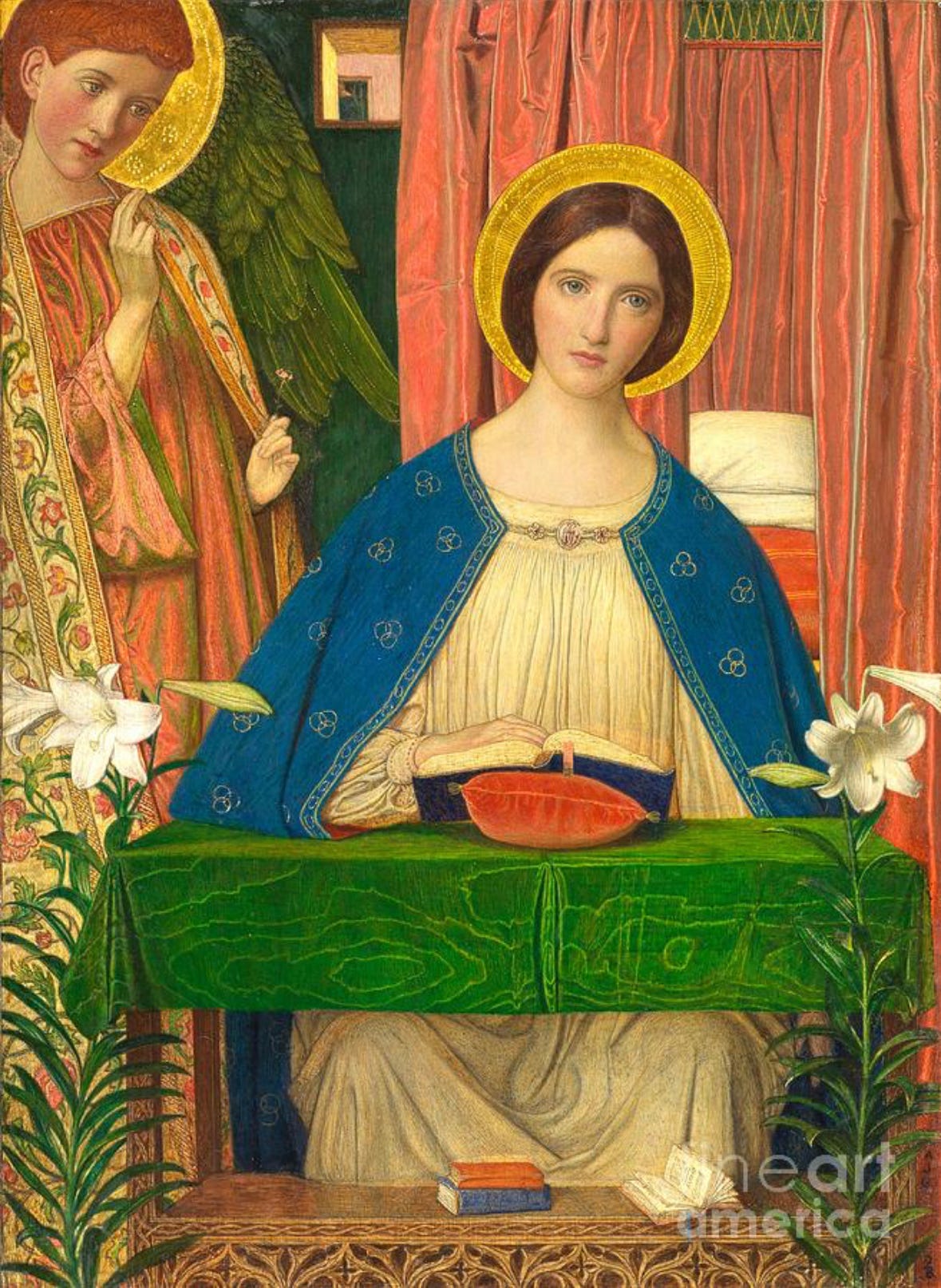God Became Man: Saints’ Words on the Feast of the Annunciation and Incarnation
“And the angel being come in, said unto her: Hail, full of grace, the Lord is with thee: blessed art thou among women…Fear not, Mary, for thou hast found grace with God. Behold thou shalt conceive in thy womb, and shalt bring forth a son; and thou shalt call his name Jesus. He shall be great, and shall be called the Son of the most High; and the Lord God shall give unto him the throne of David his father; and he shall reign in the house of Jacob for ever. And of his kingdom there shall be no end…The Holy Ghost shall come upon thee, and the power of the most High shall overshadow thee. And therefore also the Holy which shall be born of thee shall be called the Son of God…[N]o word shall be impossible with God. And Mary said: Behold the handmaid of the Lord; be it done to me according to thy word.” —Luke 1:28-38
Today, March 25, is the feast of the Annunciation. St. Luke recounted the scene in the above passage, describing that moment so key that we still count all history from the year it happened—the moment when God deigned in His infinite mercy to become man in the womb of the Virgin Mary to save us from our sins.
To the only woman miraculously preserved from sin (hence “full of grace”) came the message that she was to give birth to the Messiah, the God-man. And when Mary agreed, the Incarnation occurred—that is, God become flesh in her womb, so that He might one day die and rise again, saving men from sin. Throughout Christian history, great saints, theologians, and artists have been endlessly fascinated with the Annunciation and Incarnation. Even more than the birth of Christ, the Incarnation/Annunciation was a pivotal moment at which the redemption of mankind began. I would like to share a few quotes from saints and theologians that provide beautiful inspiration and food for meditation on this feast day.
“Man's maker was made man that He, Ruler of the stars, might nurse at His mother's breast; that the Bread might hunger, the Fountain thirst, the Light sleep, the Way be tired on its journey; that Truth might be accused of false witnesses, the Teacher be beaten with whips, the Foundation be suspended on wood; that Strength might grow weak; that the Healer might be wounded; that Life might die…Him whom the heavens cannot contain, the womb of one woman bore. She ruled our Ruler; she carried Him in whom we are; she gave milk to our Bread.” —St. Augustine
“When the angel appeared to Mary, God was announcing this love for the new humanity. It was the beginning of a new earth, and Mary became ‘a flesh-girt Paradise to be gardened by the new Adam.’ As in the first garden Eve brought destruction, so in the garden of her womb, Mary would now bring Redemption.” —Venerable Archbishop Fulton J. Sheen
“Because of the Incarnation, I salute all remaining matter with reverence.” —St. John of Damascus
“Such ‘consent,’ given by Mary, is not merely private, but expresses the willing participation of man, of humanity, in the work of salvation. In the freedom of Mary, at that instant, were contained all the desires, fears, and hopes of man in need of redemption. And the New Eve spoke her full, total yes to the angel of light, just [as] the first Eve had once spoken her yes to the angel of darkness. Moreover, the response given by Mary to the angel also expresses, in addition to her consent, a humble and unconditional dedication to the plan of God entrusted to her.” —Fr. Settimio M. Manelli, F.I.
“The purpose and cause of the incarnation was that He might illuminate the world by His wisdom and excite it to the love of Himself.” —Peter Abelard
“Following her example of obedience to God, we can learn to serve delicately without being slavish. In Mary we don’t find the slightest trace of the attitude of the foolish virgins [Matt. 25], who obey, but thoughtlessly. Our Lady listens attentively to what God wants, ponders what she doesn’t fully understand and asks about what she doesn’t know. Then she gives herself completely to doing God’s will: Behold the handmaid of the Lord, be it done unto me according to your word.” —St. Josemaria Escriva
“The Resurrection is the eucatastrophe of the story of the Incarnation - This story begins and ends in joy.” —JRR Tolkien
“Mary showed complete trust in God by agreeing to be used as an instrument in his plan of salvation. She trusted him in spite of her nothingness because she knew he who is mighty could do great things in her and through her. Once she said ‘yes’ to him, she never doubted. She was just a young woman, but she belonged to God and nothing nor anyone could separate her from him.” – St. Teresa of Calcutta
“Sometimes at the very bottom of paintings of the angel telling Mary that she is to be the Mother of the Savior, the artist paints a small picture of Christ lying in the tomb. This shows us the destiny of the child who begins to lie in Mary’s womb at the annunciation. Such paintings remind us that life is a gift which has its own cost. We accept it to share it, and in sharing it generously we discover life’s meaning, although not without cost. God becomes man so that each of us can be reborn from God.” —Francis Cardinal George
“How often in these situations must Mary have returned inwardly to the hour when God’s angel had spoken to her, pondering afresh the greeting: ‘Rejoice, full of grace!’ and the consoling words: ‘Do not be afraid!’ The angel departs; [Mary’s] mission remains, and with it matures her inner closeness to God, a closeness that in her heart she is able to see and touch.” —Pope Benedict XVI





